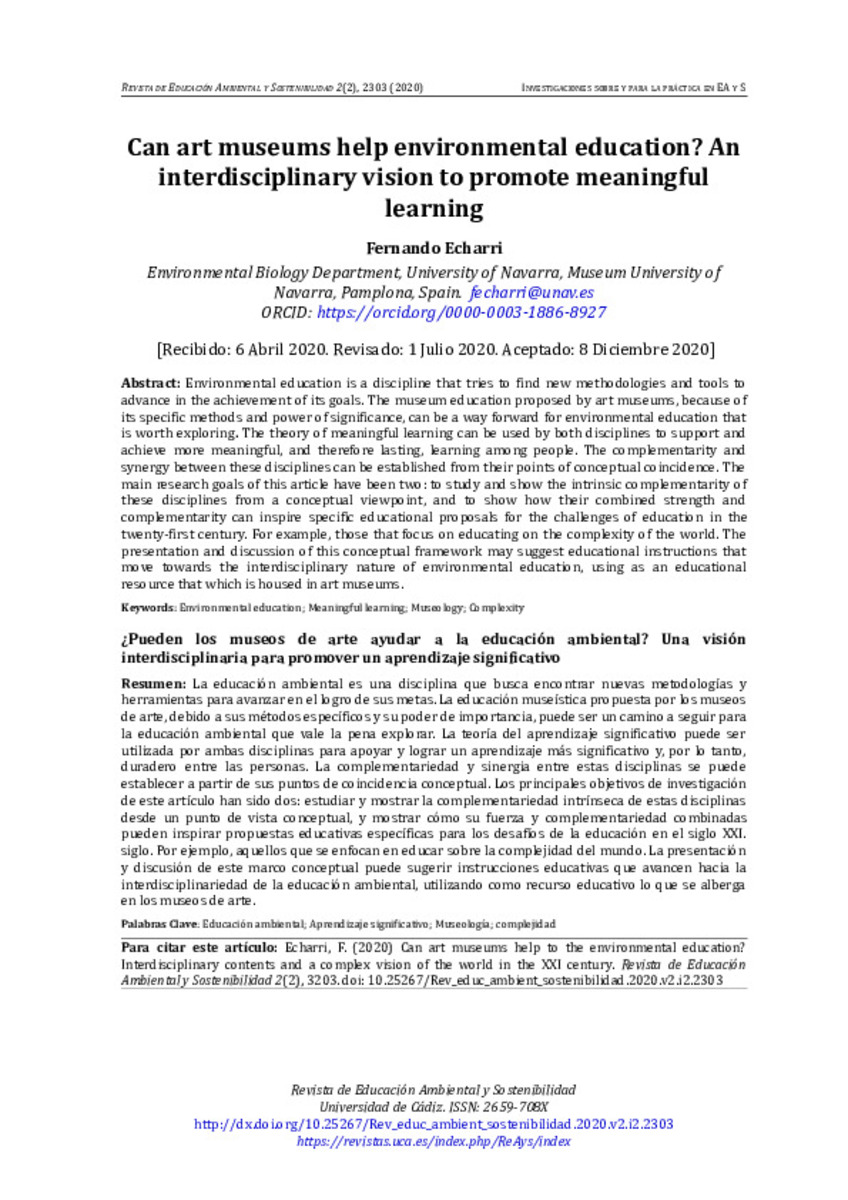Can art museums help environmental education? An interdisciplinary vision to promote meaningful learning
Other Titles:
¿Pueden los museos de arte ayudar a la educación ambiental? Una visión interdisciplinaria para promover un aprendizaje significativo
Keywords:
Environmental education
Meaningful learning
Museology
Complexity
Educación ambiental
Aprendizaje significativo
Museología
Complejidad
Publisher:
Universidad de Cádiz
Citation:
Echarri-Iribarren, F. (Fernando). "Can art museums help environmental education? An interdisciplinary vision to promote meaningful learning". Revista de Educación Ambiental y Sostenibilidad. 2 (2), 2020, 3203
Statistics and impact
0 citas en

0 citas en

Items in Dadun are protected by copyright, with all rights reserved, unless otherwise indicated.









